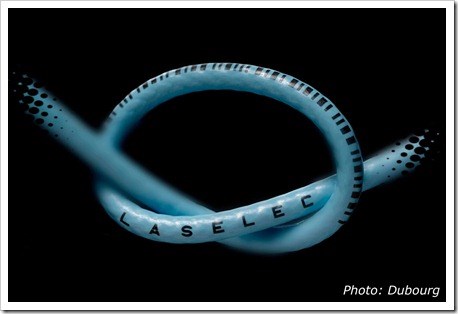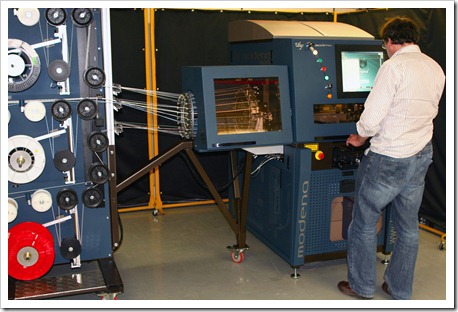From Markers to Lasers
As aircraft manufacturers are building bigger planes, they’re looking for the ways to reduce weight.
Share





As aircraft manufacturers are building bigger planes, they’re looking for the ways to reduce weight. Airbus, for example, for the A380, is using aluminum wire where appropriate. It is worth noting that an A380 uses on the order of some 500 kilometers (a.k.a., 311 miles) of wire and cables, so this is a non-trivial quantity.
One challenge is that there are points at which the aluminum wire must be crimped, and as the wires are covered so as to be waterproof, it has been a standard practice to use felt-tipped markers to indicate locations along the wire. Not exactly a technical means for such a highly technical craft.
But a process has been developed to perform the operation using a laser system, which is being patented by Airbus and Laselec, a firm that produces cable and wire marking equipment.
The laser system provides permanent marks without damaging the insulation. Laselec has developed both the marking systems, the Ulys Modena and MRO 200, as well as test systems, the MT 200, which verifies the contract level after UV laser marking, and the COMET, which checks the contrast of the markings on the cable.
Somehow, the laser just seems more appropriate than a Sharpie in this application.
Related Content
-
Increasing OEM Visibility to Shopfloor Operations for the Win
A former employee of General Motors and Tesla talks about the issues that led to shutdowns on factory lines, and what small- to medium-sized manufacturers can do today to win business from large OEMs.
-
Solar Atmospheres Receives Northrop Grumman Approval for South Carolina Facility
All five Solar Atmospheres facilities are now an option for customers with Northrop Grumman requirements for vacuum heat treating.
-
How a Custom ERP System Drives Automation in Large-Format Machining
Part of Major Tool’s 52,000 square-foot building expansion includes the installation of this new Waldrich Coburg Taurus 30 vertical machining center.

.jpg;width=70;height=70;mode=crop)


















.png;maxWidth=300;quality=90)





